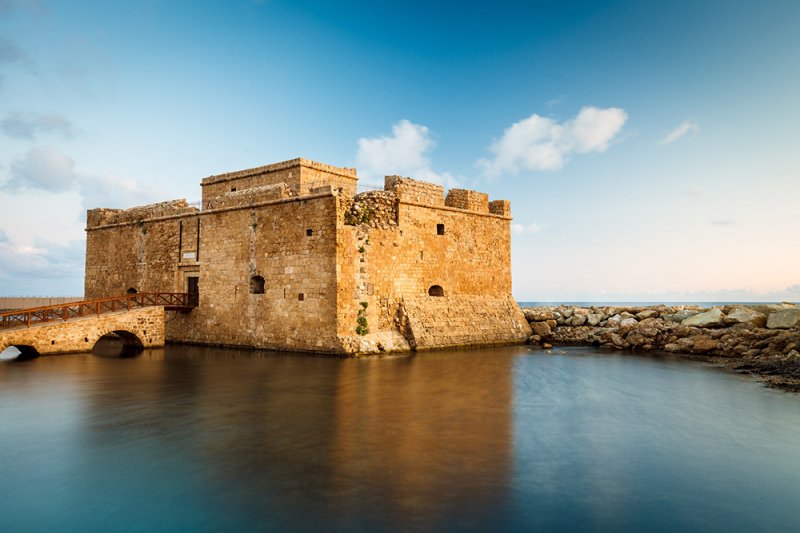Paphos, embraced by the Mediterranean Sea, is located in the West of Cyprus. In ancient times the city was divided into two areas,
It is worth to mention that Paphos has been fairly honoured as the "European Cultural Capital of 2017".

It is exciting how the founding myth of Paphos' name is associated with the worship of Aphrodite. According to the Hellenistic encyclopaedia Bibliotheca, Pygmalion was so dedicated to Aphrodite that he stole the goddess' statue and kept it in his palace. But the statue, named Galatea, got alive and gave birth to Pygmalion's children, Metharme and Paphos. Kinyras, perhaps son of Paphos, established the city in the name of Venus and he built the first great temple, dedicated to the goddess. Besides, one of the most famous myths regarding Aphrodite's birth wants her emerging through Paphos' sea.
It is exciting how the founding myth of Paphos' name is associated with the worship of Aphrodite. According to the Hellenistic encyclopaedia Bibliotheca, Pygmalion was so dedicated to Aphrodite that he stole the goddess' statue and kept it in his palace. But the statue, named Galatea, got alive and gave birth to Pygmalion's children, Metharme and Paphos. Kinyras, perhaps son of Paphos, established the city in the name of Venus and he built the first great temple, dedicated to the goddess. Besides, one of the most famous myths regarding Aphrodite's birth wants her emerging through Paphos' sea.

The city's history dates back to the Neolithic period. It has always been the centre of Aphrodite's worship with the temple of Aphrodite at Kouklia and the Baths of Polis to be robust evidence of the ancient residents' piety and loyalty. Regarding New Paphos, it is believed that Agapinor, Arcades' marshal, after the conquest of Troy, arrived in Cyprus and founded New Paphos as a colony of his people. New Paphos was also dedicated to the worship of the beauty goddess.
According to the Acts of the Apostles (xiii. 6), the Roman Era came to an end when Apostle Paul arrived in Cyprus and established Christianity in Paphos. During the same period, the Arabs invaded the city. However, the Byzantines intervened to protect it and kept it for 700 years under their control. Then, not only Paphos but the whole island was conquered by Richard the Lionheart and the Knights Templar, until it became a part of the Byzantine Empire up to 1489. Through the years the city experienced other conquerors (Venetians, Ottoman and British rule) and it gradually lost its glory. Early in 1974 it, indeed, turned to be the most underdeveloped region of the island, compared with Limassol, Nicosia and Larnaca.

Despite the above, after 1974 things did change for Paphos. Today, the town consists of two parts, the Estate, which is the residential area, and Kato Paphos; they are connected with St. Paul' s Avenue. The rapid touristic evolvement in Kato Paphos rendered the area the elite part of the town, where most residents are being employed and where luxurious hotels have been built, Coral Bay, Latchi, and Aphrodite Hills. Additionally, the Second International Airport is being hosted there since 1982 and it annually serves more than 1.5 million travellers. After 2008, the airport was upgraded with a new terminal next to the old one.

